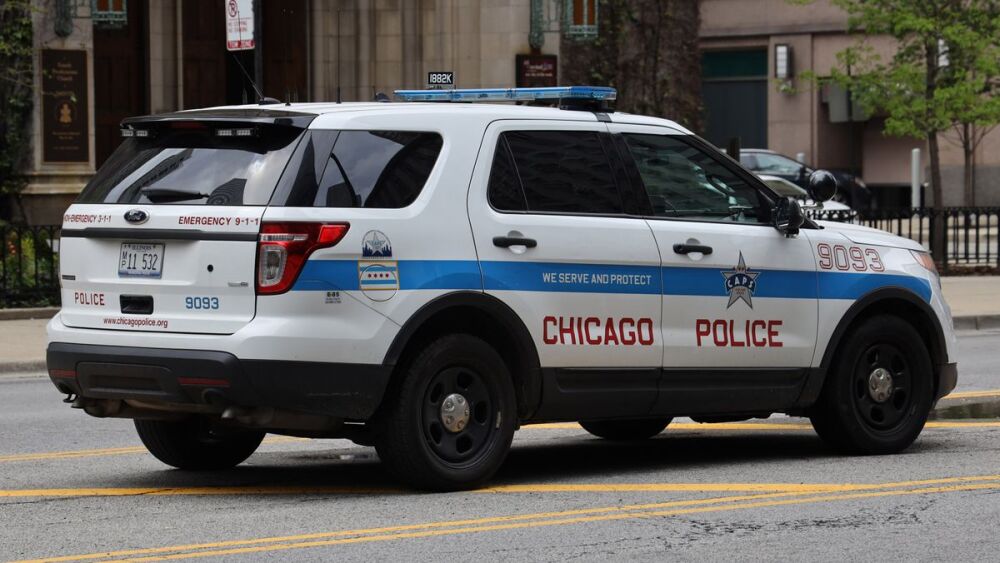By Annie Sweeney
Chicago Tribune
CHICAGO — After drawing stinging criticism for an improper raid in 2019 in which Chicago police officers executed a search warrant at the wrong address and forced a woman to stand handcuffed and unclothed in her home, the Police Department on Friday announced an updated policy for conducting those warrants.
The new policy, which goes into effect May 28, creates more safeguards for how officers obtain the right to search a home.
The revised policy, for example, calls for a department member who is at the rank of lieutenant or above to be at the scene when the warrant is executed and for each member of the team serving the warrant to wear body cameras. A female member of the department also is required to be present during the service of the warrant, the policy states.
“The revisions of this search warrant policy reflect our dedication to protecting public safety, while prioritizing and respecting the rights of the residents we serve,” said Superintendent David Brown in a news release. “This revised policy would not have been possible without the input of our community members.”
The new policy also creates more reviews both prior to and after a search. For example, a search warrant served on a property or location where occupants could be present must be reviewed by several supervisors, including a deputy chief.
Further, the more unusual “John Doe” and no-knock warrants must be authorized by bureau chiefs. John Doe warrants are based on anonymous, but verified, tips and no-knock warrants allow officers to enter without notification to occupants.
The reviews also call for verification of the information used to secure the warrant and consideration for special conditions that might be present, including whether children are expected to be in the home.
The city has faced intense scrutiny over warrants since it was revealed in December 2020 that Chicago police officers in 2019 executed a warrant at the home of social worker Anjanette Young. In that case, officers searching the wrong house forced Young to stand handcuffed and unclothed for several minutes in her home.
The raid at Young’s home was captured on officers’ body cameras and quickly went viral after being publicly released. The video footage was first reported by WBBM-TV Ch. 2 in its series of stories about faulty search warrants.
The policy has been in the works for months and was subject to public feedback.
At least one department critic said the changes do not go far enough, pointing to an ordinance that was drafted in February 2021 that included more demands for transparency and stronger language around prohibiting aggressive interactions, such as pointing a gun at a child, during the execution of warrants.
“I think that the need for supervisor approval is a critically important and positive thing that is captured in the new proposal,” said Sheila Bedi, a civil rights lawyer from Northwestern University’s Pritzker School of Law. “But the reality is that supervisory approval is not enough if CPD isn’t required to curb the ability to harm people in these circumstances and also be publicly accountable when things go wrong.”
The ordinance, proposed by five female aldermen, also would have banned no-knock warrants and stated that police executing warrants would have to use “tactics that are the least intrusive to people’s home, property and person and least harmful to people’s physical and emotional health.” It also would have demanded that officers record information about warrants and would have prohibited the handcuffing or pointing guns at children.
The revised CPD policy, meanwhile, does include language that states all department members will treat people with “courtesy and dignity” and “act in accordance with the Constitution of the United States of America.”
City officials noted that the policy announced Friday is part of the department’s court-mandated reform of practices, which is being overseen by a federal judge.
“These critical revisions to CPD’s search warrant policies and procedures come at a pivotal moment in our journey as we work to bring about true police reform,” said Mayor Lori Lightfoot in the press statement. “Furthermore, they are just one of many reforms that CPD has and will continue to make in order to ensure that accountability, transparency, and human dignity are the guiding principles of policing here in Chicago.”
©2021 Chicago Tribune.











